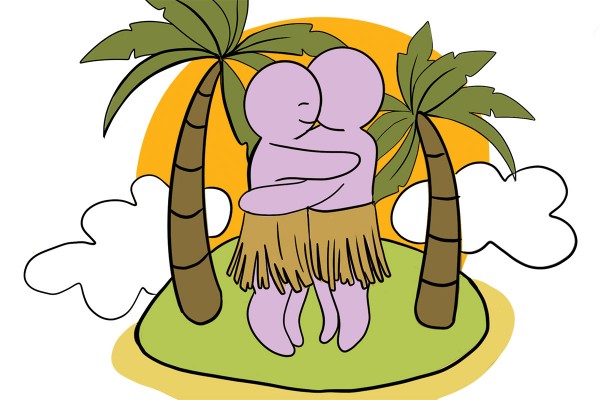Bula brass! Fijian language week was from Sunday 3 October to Saturday 9 October, my personal favourite because Fiji is my homeland. I talked to some of my Fijian matavuvale (family) down here in Dunners to learn some more about my own culture, and to learn about their experiences being stunning brown baddies in the cold.
How would you describe Fiji for people who don’t know anything about the culture/country?
“Fiji is known as a beautiful holiday destination with white sandy beaches, clear blue water, and plenty of tourist activities. But behind the hype, Fiji is home to the friendliest people, known for good food and the best drink known to the Pacific: kava. Fiji has over 300 islands, each their own little tropical paradise rich in culture, food, and community,” said Nancy.
Ruthie was born and raised in Fiji until she got a netball scholarship to a high school in Christchurch at year 11. “As a person who lived in the city, it is upgraded, we’re not all in grass skirts anymore. Fiji has increased in terms of housing, businesses, buildings, everything else that makes it a city. We’re not all villages like people might think,” she said.
What sets Fiji apart from other Pasifika cultures?
“The people are what sets it apart. Friendly, humble, and compassionate is how many people describe Fijjians, and is what makes the country the most successful holiday destination out of all Pacific Islands. Fiji is also rich in education, being one of the few islands that is home to the University of the South Pacific which draws many academics from all over the South Pacific,” said Nancy.
“Especially being a Fijian studying away from home, in an area with a small number of Fijians, I know I can ask any of my other mates for help if I need it. You can take the Fijian out of Fiji, but you can’t take the Fiji out of the Fijian. That resonates deeply with a lot of us. If you need help, and you don’t have to be Fijian, they will help you. Even if it takes a lot of money and time, it’s fine,” said Ruthie.
What has your experience been as a Fijian student in Dunedin?
“It’s definitely your own personal choice whether you want to be immersed with Fijians in the community. You can choose to be immersed, or you can choose not to, and it’s absolutely fine either way. I’m glad I knew Fijians that studied here before I came down, that was a big help. It’s quite fun being a Fijian here, you get to understand each other and community wise, there are people who can kind of relate to what you’re going through, with that background aspect. I love all the community functions that I go to, even when they go overtime by three hours,” said Ruthie.
What do you appreciate the most about your culture?
“Knowing I’ll always have a home to go back to. In Fiji, if you don’t do well in the city, or in another country, it’s very much a thing for you to go back to your village. As much as that kills your pride, you still have a home and family to go back to. You get to go back home and restart again. It sucks because you have to get over the initial shame, but you get to go back to family, and they’ll always be there to help you,” said Ruthie.
Here are some Fijian words and phrases to bank in that big ol brain of yours, besties.
- Hello: bula, pronounced mboo-lah.
- Goodbye: moce, pronounce maw-theh.
- Thank you: vinaka, pronounced vee-nah-kah.
“Fjii is more than a holiday destination. It is more than the rugby that we play, and we know that we play it really well, but, it also has a mixture of cultures, different ethnicities, different backgrounds. It’s definitely multicultural. We’re more than what people see us as, and we’re more than a bottle of water (@metgala do better be better lol),” said Ruthie to finish us off quite nicely.






